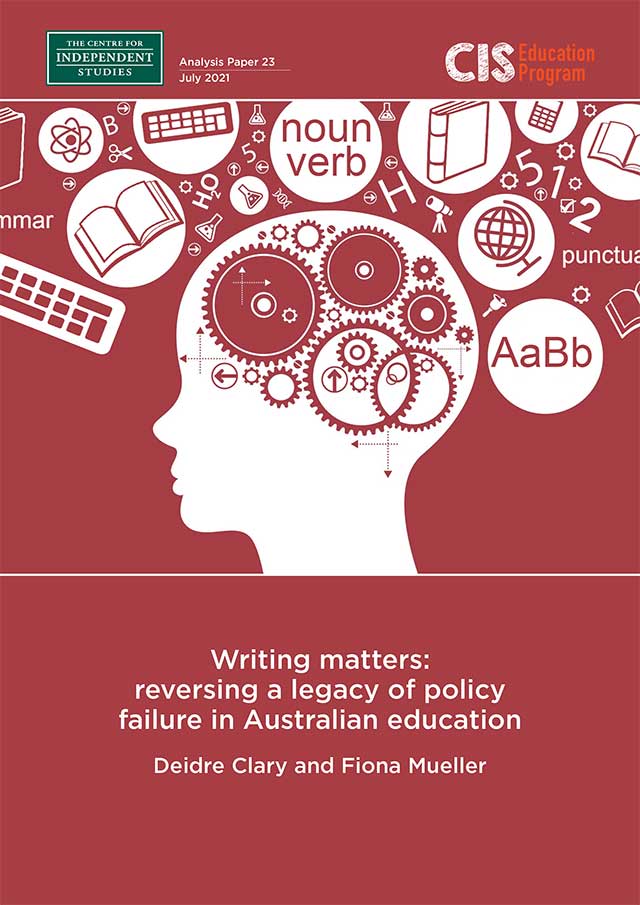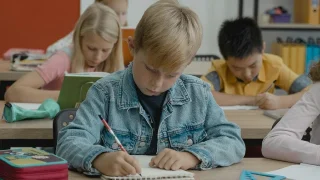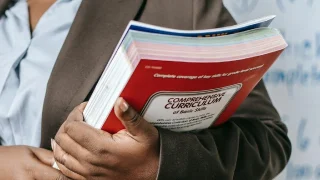
Generational decline in student achievement and teacher expertise in writing skills — the poor cousin of reading skills in Australian educational research — is under increasing scrutiny as parents, employer groups, tertiary institutions and other stakeholders express concern about school leavers’ preparedness for the literacy demands of post-school life and work.
The downturn in writing skills
Since the middle of last century, Australian education has seen the adoption, variable implementation and occasional jettisoning of a parade of methodologies including learning styles, multiple intelligences, critical literacy, constructivism, whole language, process writing, genre theory and text types, balanced literacy and learning progressions. Most have been introduced without obvious due diligence in relation to teacher expertise or objective consideration of applicability — and effectiveness — in the Australian context. Many of the local proponents remain influential.
A consequence of these shifts in policy and practice has been the near abandonment of consistent, explicit instruction about how the English language works as a system, juxtaposed with an ideological preoccupation with the socio-cultural ‘experience’ of students in the classroom.
In the context of national reviews of curriculum and teacher education, this paper traces Australia’s history of policy instability in English literacy education and proposes strategies for improvements and greater accountability.
We know that writing is a skill that must be learnt and practised and is all about clear thinking and mastery of language; children do not learn to write by osmosis. However, there has been a 10-year decline in Australian students’ writing skills, as measured by the National Assessment Program — Literacy and Numeracy (NAPLAN).
- In 2018, more than one in five Year 9 students failed to achieve the national minimum standard in writing, meaning they were far less likely to be successful in the final years of secondary school.
- In 2019, Year 7 and 9 students’ achievement in writing fell below the 2011 national average.
- By Year 9, boys’ writing skills are, on average, up to two years behind those of girls.
- Secondary school students struggle more with writing than with reading and numeracy.
- Many aspiring teachers enter university programs with low levels of competence in English literacy and lack confidence in their writing skills when they graduate.
- The loss of teacher expertise in English language usage has dire implications for Australian students, and each generation’s decline makes it less likely that this can be reversed
- A long line of studies and reports underscores the concerns of parents, employer groups, tertiary institutions and other stakeholders about school leavers’ preparedness for the literacy demands of post-school life and work.
Policy failure has led to a generational decline in writing skills
- Over many decades, Australian literacy education has seen the adoption, variable implementation and occasional jettisoning of a parade of methodologies; including learning styles, multiple intelligences, critical literacy, constructivism, whole language, process writing, genre theory and text types, balanced literacy and learning progressions.
- In addition to the problem of a ‘crowded’ and unnecessarily wordy national curriculum, there are unresolved and unhelpful tensions between advocates of different literacy methodologies.
- Generations of young learners have paid a big price for laissez-faire, constructivist approaches adopted without obvious due diligence being undertaken in relation to teacher expertise or any objective consideration of applicability — and effectiveness — for students in the Australian context.
- There is a critical lack of rigorous, objective Australia-based research material specifically designed to justify, inform and evaluate educational change
- In Australia, the lack of policy clarity and evidence-based decision-making is reflected in the hybrid ‘balanced literacy’ approach as well as the more recent fixation on ‘multiliteracies’, neither of which shows any potential to address this country’s specific deficits in grammar and writing. Literacy expert Professor Claire Wyatt-Smith pinpoints that: “The teaching of writing lacks coherence”, with “a maze of curriculum documents and maze of standards competing for teachers’ attention.”
- Writing has been largely ‘forgotten’ amid a much stronger policy focus on reading, likely due to the national preoccupation with Australian students’ declining performance in international assessments of reading and mathematics.
- One of the major hindrances to improving English literacy standards is the variation in teacher education programs across Australia, partly the result of states and territories adhering to ACARA’s advice to “implement the Australian Curriculum in ways that value teachers’ professional knowledge, reflect local contexts and take into account individual students’ family, cultural and community backgrounds.”
- There is massive disparity between public concerns about student progress and teacher expertise and professional organisations’ claims of high standards and achievement.
Solutions
Australian education must focus on well-structured and explicit ways of teaching that ensure mastery of grammar and high-quality written expression, and that needs to happen across all areas of the curriculum and throughout every year of schooling.
- Elsewhere in the world, high-performing systems know what works and are absolutely clear about the importance of high-quality language strategies.
- A critical first step is to conduct forensic, objective analysis of past policy decisions – and their effectiveness — in Australian literacy education.
- The 2021 Review of the Australian Curriculum offered an ideal opportunity to evaluate literacy methodologies as part of ‘refining, realigning and decluttering’ a ‘crowded’ national curriculum. Regrettably, the narrow terms of reference did not include this.
- The 2021 Quality Initial Teacher Education Review — the latest in a long line of such investigations — aims to ensure that graduates of university education programs possess “the necessary knowledge, skills and dispositions to be successful teachers in any Australian school.” This should include a careful, objective evaluation of the literacy methodologies currently in use.
- The Literacy and Numeracy Test for Initial Teacher Education Students (LANTITE) purports “to ensure teachers are well equipped to meet the demands of teaching and assist higher education providers, teacher employers and the general public to have increased confidence in the skills of graduating teachers.” There is no extended writing test, and placing the LANTITE at the end of teacher training programs is a stark policy difference from that of high-performing Singapore, where applicants are screened before admission to teacher education programs.
Also by Dr Fiona Mueller: A 2021 education resolution: keep an eye on the Australian Curriculum
SELECTED REFERENCES
Sowell, T. (1993) Is Reality Optional? Hoover Press, California
Cozmescu, H. (June 2008) Thinking Balanced Literacy Planning. Australian Literacy Educators Association. (13) 2, p.6
Mitchell, S. (30 November 2020) The reading wars are over and phonics has won. The Sydney Morning Herald. https://www.smh.com.au/national/nsw/the-reading-wars-are-over-and-phonics-has-won-20201127-p56ioj.html
Castles, A.; Rastle, K. & Nation, K. (June 2018) Ending the Reading Wars: Reading Acquisition From Novice to Expert. Psychological Science in the Public p. 38 https://journals.sagepub.com/doi/full/10.1177/1529100618772271
Baker, Jordan (30 May 2021) Year 9 NAPLAN writing results the best predictor of HSC success: study. The Sydney Morning Herald. https://www.smh.com.au/education/year-9-naplan-writing-results-the-best-predictor-of-hsc-success-study-20210528-p57w6w.html
Bolton, R. (18 April 2019) Boys’ inability to write clearly is a new crisis in education. Australian Financial Review. https://www.afr.com/policy/health-and-education/boys-inability-to-write-clearly-is-a-new-crisis-in-education-20190416-p51ek0










